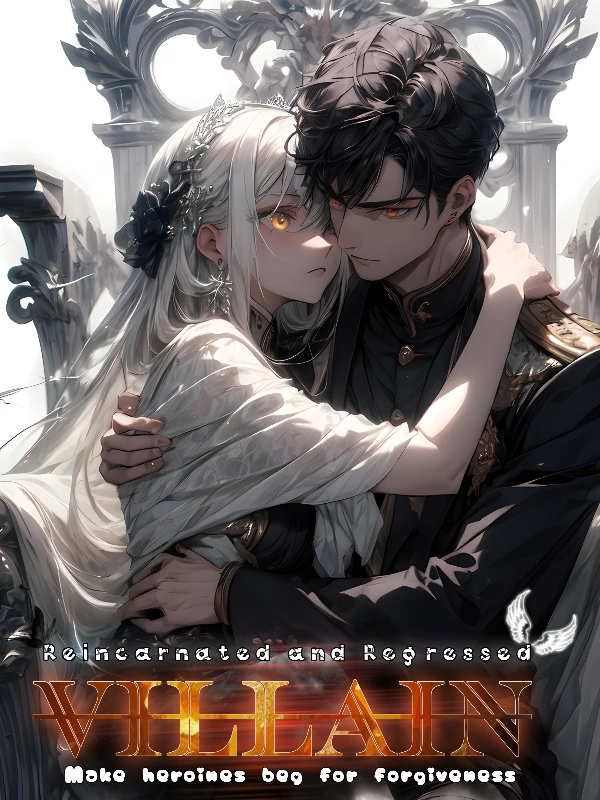Chapter 53: The Shadow of Versailles (3)
Translated by Vine | Proofread by Lust
For the latest updates, visit: ProNovels.com
Join our Discord for release updates: https://discord.gg/Eh2ayfR4FB
< German Civil War – The Shadow of Versailles (3) >
September 30, 1939
Southern Britain, London, Capital of the United Kingdom
Five days after the initial meeting, we began renegotiations after much maneuvering. In reality, all the decisions had already been made behind the scenes; this was merely a formality.
“Ahem, I hope we can reach a favorable conclusion this time.”
Prime Minister Daladier, despite his words, seemed displeased.
He must have been aware of Winston Churchill’s speech in the British House of Commons, supporting the “German New Government fighting for democracy against fascist dictators,” and the considerable positive response and support from MPs and the media influenced by the Anglo-German Fellowship’s lobbying.
“Ah, of course, we have also made extensive preparations.”
I replied to Daladier with a smile. Extensive preparations indeed. Though none of them were what France wanted.
Foreign Minister Weizsäcker began outlining our proposal.
“The New Government’s proposal is as follows: First, if Britain and France recognize the reign of His Majesty Emperor Wilhelm III and the legitimacy of the New Government, Germany will, in turn, guarantee the formation of a democratic government through elections under a constitutional monarchy after the civil war concludes.”
Daladier observed Chamberlain and Halifax’s reactions as he listened, but they remained impassive.
“Second, under these conditions, the German New Government will reinstate the Anglo-German Naval Agreement, which Hitler abrogated.”
The Anglo-German Naval Agreement was simple: the total tonnage of the German navy’s capital ships could not exceed 35% of the total tonnage of the British navy’s capital ships.
In reality, the German navy couldn’t even reach 20%, let alone 35%, even without the treaty limitations. However, Britain, fooled by Hitler’s bluster and unwilling to engage in another naval arms race with Germany, which had possessed the world’s second-largest navy during the Great War, had signed the agreement.
Chamberlain and Halifax seemed quite satisfied. The promise of benefits for British companies after the civil war couldn’t be included in the official treaty; it was a secret agreement.
However, this clause, while symbolic, explicitly reaffirmed to them that Germany had no intention of challenging British naval dominance.
Daladier, seemingly sensing the shift in the atmosphere, frowned.
“Third, if the above clauses are accepted, the German New Government will reaffirm the borders of France and Belgium as guaranteed by the Locarno Treaties. That concludes our proposal.”
Both France and Belgium held territories taken from Germany after World War I.
The Weimar Republic had recognized these territories as legitimately belonging to Belgium and France in the 1925 Locarno Treaties, but these treaties had been violated by Hitler’s remilitarization of the Rhineland.
Daladier scowled openly as Weizsäcker finished speaking.
“Is that all? What about the Treaty of Versailles?”
“Unfortunately, the current New Government is in the midst of a civil war and is also under attack from Italy. We have promised to form a democratic government under a constitutional monarchy and assured you that we have no intention of engaging in hostile actions against Britain, France, or Belgium.”
Daladier’s expression contorted, but I didn’t feel particularly sorry for him. It was just business between nations.
“I believe this sufficiently demonstrates our commitment to peace, without resorting to reviving outdated treaties.”
Daladier, upon hearing my words, glared at Chamberlain and Halifax. Halifax, however, spoke with an impassive expression, as if it were none of his concern.
“Britain considers the German proposal reasonable under the current circumstances. We believe this clarifies most of the concerns between Germany and ourselves. We have also received written confirmation from the Belgian Embassy expressing their support for the German proposal.”
Halifax handed the document from the Belgian Embassy to Daladier.
Daladier, his face red with anger, examined the document and then clenched it tightly. He was about to crumple an official diplomatic document.
Enjoying the translation? Stay updated with the latest chapters at ProNovels.com.
“It seems Britain and Belgium find our proposal acceptable. Does France disagree?”
The reaffirmation of the Franco-Belgian border was practically meaningless to France at the moment. Germany, embroiled in a civil war, had no capacity to invade France and reclaim those territories.
However, it eliminated the possibility of Britain being dragged into a war between Germany and France, and for Belgium, which had been caught in the crossfire during World War I, it was a welcome guarantee. Even a Germany in civil war was a considerable threat to a small nation like Belgium.
Having declared neutrality after France abandoned Czechoslovakia, Belgium could hardly expect French protection. Why would they object to Germany’s assurance of non-aggression?
“We have already guaranteed everything necessary for maintaining peace. We have promised to reintroduce the democratic system of Weimar instead of a dictatorship by a war criminal, forgo a naval arms race with Britain, and assured you of our intention to avoid conflict with France and Belgium.”
While we weren’t actually offering anything substantial, it was a sufficient response to their justifications for issuing the ultimatums: maintaining peace and preventing a dictatorship by a war criminal.
So, were they going to attack us, who were fighting for democracy against Hitler and Mussolini, just because we wouldn’t reimplement the Treaty of Versailles?
Doing so would completely undermine everything Daladier and the Radical-Socialist Party had been doing.
While the impact on the French elections was a concern, it was *they* who had chosen to prioritize their own survival over ours.
“I believe Germany has shown sufficient sincerity. We cannot possibly support Hitler and Mussolini.”
“I had no doubt that we were steadfast allies.”
Daladier complained to Chamberlain, but the latter simply looked at him with pity and remained silent.
“Of course, Britain and France are allies. However, that does not mean we are each other’s spokespeople.”
With Halifax’s final remark, the treaty was signed.
Britain, France, and Belgium recognized the German New Government as the legitimate government of Germany and acknowledged the accession of Wilhelm III under a constitutional monarchy.
“I hope this treaty will preserve peace in our time.”
Chamberlain, who offered me his hand, looked like a weary giant on the verge of collapse.
Perhaps he, who was judged in the original timeline as an incompetent Prime Minister who had been tricked by Hitler and brought about the worst war in history, had simply been desperately trying to prevent his country from being plunged into another devastating war.
“I hope so too.”
Chamberlain’s hand, which had once led a world power, felt thin and weak, somehow ephemeral.
Meanwhile, Winston Churchill, once considered a has-been, was gaining renewed attention as the only politician in Britain who had accurately foreseen the danger of Hitler, becoming an icon of anti-fascism with the support of businesses and the media.
I had done enough for him. Only posterity would judge how Chamberlain and Churchill would be remembered in this altered history.
–
October 1, 1939
Northeastern Italy, Trentino-Alto Adige/Südtirol – Bolzano, Italian Military Base
Six days after Mussolini’s declaration of war. He had rushed into war before the talks between Britain, France, and the German New Government had made any significant progress, but the Italian army was completely unprepared.
It would have been slightly better if they had deployed troops in advance, but due to the Pope’s support, the deployment of Italian troops to the Austrian border had only begun after the Military Junta’s coup.
“You’re telling me to advance with *this*?”
“Oh, God.”
The Italian soldiers, lacking proper winter gear, stared blankly at the Alps, where winter had already arrived.
For Italians, accustomed to the pleasant, warm climate of the Mediterranean coast and inland plains, the sight of the snow-covered mountains in early October was disheartening.
“Commander, no matter how much Il Duce urges us, this is impossible. Less than half of the division has been deployed, and the winter gear hasn’t arrived! If we advance now, our troops will be lost to the Alps, not the enemy!”
Giovanni Messe, who had been appointed deputy commander of the German invasion force due to his successful operation in Albania, pleaded over the phone, but the other end only responded with the sounds of eating.
[“*Chomp, chomp*. Look, Messe, I’m in the middle of a meal. Let’s talk later.”]
“C-Commander!”
[“This steak isn’t cooked to my liking, and you’re bothering me. I’ll call you back in an hour.”]
Despite Messe’s pleas, Marshal Italo Balbo, commander of the German invasion force, hung up.
“What did he say?”
Giovanni Messe stared at the phone for a moment, then replied to his adjutant’s question.
“…Let’s have a meal.”
An hour later, after a long, lively Italian meal, Giovanni Messe spoke with the commander again, but the order remained: advance.
Sighing deeply, Giovanni Messe ordered the advance, only to be informed that his troops couldn’t move because they were having a meal, per his earlier orders.
It had taken an hour for the meal order to reach each unit, and another hour for the soldiers to eat.
It was typical of the Italian army, which provided its soldiers with lavish meals, including wine, even in their garrisons. However, Messe couldn’t bring himself to interrupt his men’s last indulgence before they attempted to cross the Alps.
“We laughed at the German army’s pathetic state during the Anschluss, but we’re even worse.”
“Tell me about it.”
Giovanni Messe and his adjutant muttered in disbelief. This was the reason behind Italy’s audacious invasion of Germany.
The last time the Italian army had seen the German army was during the Anschluss, the annexation of Austria, when the Germans had launched a disorganized, hasty invasion that was over in three days.
The German army hadn’t seen any real combat since then, and Hitler and the Nazis were trying to conceal the current state of the civil war. The Italian army, therefore, underestimated the Germans, basing their assessment on the Anschluss.
The British and French, Germany’s enemies, had overestimated the German army and been constantly on the back foot during the interwar period, while Italy, Germany’s supposed ally, underestimated them and decided to attack.
–
October 3, 1939
Southwestern Austria, Tyrol, Innsbruck
The Austrian border guards looked on in bewilderment as the ragged Italian troops passed through.
Many of the Italian soldiers, ordered to march across the Alps without proper winter gear, had lost their weapons and equipment, and some were suffering from frostbite.
Major General Karl Eglseer, commander of the Austrian border guards, was on the phone with his superiors, observing the unbelievable scene.
“Are you sure we should just let them through?”
[“Yes. Those are the orders of Reichskommissar Arthur Seyss-Inquart. They are our allies, here to help us.”]
Josef Bürckel, the Reichskommissar (Nazi governor) of Austria, was naturally a Nazi Party member and remained loyal to Hitler.
“…Understood.”
Major General Eglseer, who had been assigned to the relatively unimportant border guard because of his lack of Nazi affiliations, frowned but hung up the phone. The Austrian generals who were Nazi Party members or had pro-Nazi sympathies had all been sent to Germany as part of the invasion force for Poland.
The Italian troops, upon reaching Innsbruck, began begging the residents for warm meals and shelter.
“They’re a great help as allies, aren’t they?”
Major General Eglseer clicked his tongue, but orders were orders.
“They’ll probably move on after they rest, General.”
Contrary to their expectations, however, the Italian troops continued to arrive in Innsbruck in small, disorganized groups, not even at the company level, but in platoons or even smaller units.
The residents of Innsbruck, accustomed to welcoming travelers crossing the Alps, treated the Italians well, considering them allies. The Italian troops, having received this warm welcome, regained their strength but showed no signs of leaving.
Finally, Major General Eglseer, his patience wearing thin, managed to locate the officer in charge of the Italian troops.
“What are you doing? Aren’t you here to fight the German rebels?”
General Giovanni Messe, deputy commander of the German invasion force, was quite embarrassed to be confronted by the furious Major General Eglseer.
The orders he had received from his superiors were as follows:
‘Since it will take time for the entire army to assemble, lead the vanguard across the Alps and secure Tyrol.’
Here, “secure” meant Italianizing the region, banning German place names and the use of the German language, as Mussolini had done in Bolzano (the Italian name for Südtirol).
But how could he do that to the Austrians who, instead of repelling his ragged troops after they crossed the Alps, had cared for them as allies?
While his conscience bothered him, as the commander on the ground, he judged that antagonizing the Austrians and turning them into enemies would be disastrous.
“I’m afraid our orders are to remain here.”
“Until when?”
“Well, I suppose until the main force arrives.”
Mussolini, who had initially demanded all of Austria, had been bluntly refused by Hitler. With the Military Junta’s coup, he had tried to court Britain and France, but had been met with a cold response.
He had then lowered his demands to southern Austria, but after being refused again by Hitler, he had finally settled for Tyrol in exchange for joining the war.
“So you’re telling me you’re going to stay here indefinitely?! You should have at least set up a camp if that was the plan!”
Messe was speechless. But what could he do when his troops had been sent without proper equipment?
Furthermore, his orders were to eventually occupy Tyrol, the very region that had welcomed and cared for them as allies. He had a splitting headache.
However, Messe’s worries were short-lived, unfortunately, for all the wrong reasons.
“What have you been doing, Deputy Commander?!”
Marshal Italo Balbo, commander of the invasion force, who had finally arrived after several days of leisurely travel, immediately berated Messe.
“And who is this?”
Marshal Balbo, seeing Major General Karl Eglseer in his Wehrmacht uniform, didn’t bother hiding his disdain. “What is this mere Major General doing here, causing trouble?” Eglseer retorted angrily.
“Aren’t you here as our allies to fight the rebels? Why are you occupying Tyrol?”
“Commander, allow me to explain the situation!”
Messe tried to intervene, but the Marshal spoke over him.
“This is no longer Tyrol. As of today, this is the northern province of Trentino-Alto Adige, incorporated into Italian territory!”
This was the disastrous result of the disconnect between Hitler, who had expected the Italian allies to actively participate in suppressing the rebels, and Mussolini, who, frustrated at receiving only Tyrol instead of all of Austria, was looking for ways to vent his anger.
< German Civil War – The Shadow of Versailles (3) > End
ⓒ Carcassonne
For the latest updates, visit ProNovels.com. Join our Discord for release updates: https://discord.gg/Eh2ayfR4FB.





















